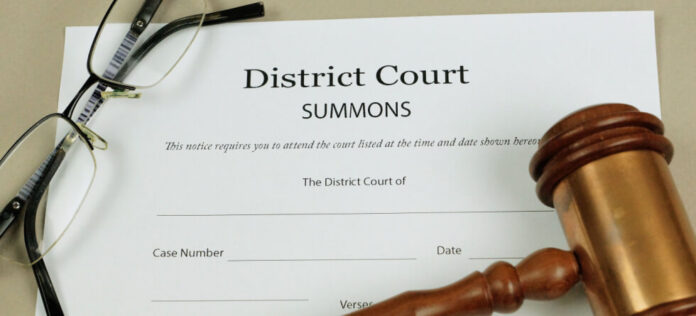Facing a summons for debt collection in Colorado can be an overwhelming experience. However, it’s essential to understand that you have legal rights and options to protect yourself. By responding strategically, you can challenge inaccuracies, assert defenses, and explore solutions to manage your debt. This article will guide you step-by-step on how to answer a summons for debt collection in Colorado.
What Happens When You’re Served with Debt Collection Papers in Colorado?
When you receive a summons and complaint for a debt collection lawsuit, it signifies that a creditor or debt collector has officially taken legal action against you. The summons informs you about the lawsuit and provides a deadline to respond, typically 21 days. Failure to answer the summons can lead to a default judgment, allowing the creditor to pursue actions like wage garnishment or seizing assets.
Steps to Respond to a Debt Collection Lawsuit in Colorado
1. Read the Complaint Thoroughly
The complaint will outline:
- The amount owed.
- The reason for the debt (e.g., unpaid loan, credit card).
- The legal basis for the lawsuit.
Carefully review this document to ensure accuracy and identify any errors or discrepancies.
2. Consult a Debt Collection Defense Attorney
Although it’s not mandatory, seeking legal advice is highly recommended. An experienced attorney can:
- Help you draft your response.
- Identify potential defenses.
- Guide you through Colorado’s legal process.
3. File an Answer to the Complaint
To respond to the lawsuit, you must file an answer with the court. Here’s how:
a. Admit, Deny, or State Insufficient Knowledge
For each allegation in the complaint:
- Admit if it’s true.
- Deny if it’s false.
- State “lack of knowledge” if you’re unsure.
b. Assert Affirmative Defenses
Include any legal defenses that may apply, such as:
- Statute of Limitations: If the creditor waited too long to file the lawsuit, you can argue it’s invalid.
- Inaccurate Amounts: Challenge errors in the claimed debt amount.
- Fraud or Misrepresentation: If the debt was obtained through deceitful means, this is a valid defense.
c. Pay the Filing Fee
Colorado courts typically charge a fee to file your answer. Fee waivers may be available for individuals with financial hardship.
d. File Your Answer with the Court
Submit the completed answer to the court clerk within 21 days of receiving the summons. Ensure you:
- Retain a copy for your records.
- Send a copy to the plaintiff or their attorney.
Understanding Debt Collection Laws in Colorado
Federal Protections: The FDCPA
The Fair Debt Collection Practices Act (FDCPA) shields consumers nationwide from unfair collection practices. Debt collectors cannot:
- Use abusive language or threats.
- Misrepresent their identity.
- Harass you with excessive communication.
Colorado State Laws
Colorado provides additional consumer protections, including limitations on wage garnishment and a clear framework for disputing debts.
Exploring Debt Relief Options in Colorado
If you’re struggling to resolve the debt, consider these alternatives:
1. Negotiation
You can negotiate directly with creditors to settle the debt for a reduced amount or agree to a manageable payment plan.
2. Debt Settlement
Debt settlement involves offering a lump-sum payment for less than the total owed. This option can help you avoid further legal action.
3. Credit Counseling
Colorado-based credit counseling agencies provide financial education and create repayment plans tailored to your situation.
4. Bankruptcy
As a last resort, bankruptcy can discharge or restructure your debts. Options include:
- Chapter 7 Bankruptcy: Eliminates most unsecured debts.
- Chapter 13 Bankruptcy: Creates a repayment plan over 3-5 years.
Stopping Wage Garnishment in Colorado
If a creditor obtains a judgment, they may garnish your wages. However, Colorado laws limit the amount that can be garnished:
- Head of Household Exemption: Protects more of your income if you support dependents.
- Disability Income: Exempt from garnishment in most cases.
What if You Haven’t Been Sued Yet?
If you suspect legal action but haven’t received a summons, take proactive steps:
- Validate the Debt: Request written verification under the FDCPA.
- Dispute Errors: If you believe the debt is inaccurate, send a written dispute within 30 days of the initial notice.
- Check the Statute of Limitations: Determine whether the debt is time-barred under Colorado law.
Frequently Asked Questions about Colorado Debt Collection
1. How do I write an answer to a summons for debt in Colorado?
Carefully address each allegation in the complaint by admitting, denying, or stating insufficient knowledge. Include any affirmative defenses and file the answer with the court.
2. What happens if I ignore a debt summons in Colorado?
Ignoring the summons can result in a default judgment, allowing the creditor to garnish your wages or seize assets.
3. Can I settle a debt after being sued?
Yes. You can negotiate a settlement with the creditor, often for less than the amount owed.
Let’s Summarize
Dealing with a debt collection summons in Colorado can be stressful, but taking action is crucial. Follow these steps:
- Review the complaint for accuracy.
- File an answer within the 21-day timeframe.
- Assert your defenses, such as the statute of limitations or fraud.
- Explore debt relief options like settlement, credit counseling, or bankruptcy.
Colorado’s legal system provides tools and protections to help you navigate this process. By understanding your rights, you can confidently respond and safeguard your financial future.
Read Also
How to Answer a Summons for Debt Collection in Alabama
How to Answer a Summons for Debt Collection in Alaska
How to Answer a Summons for Debt Collection in Arizona
